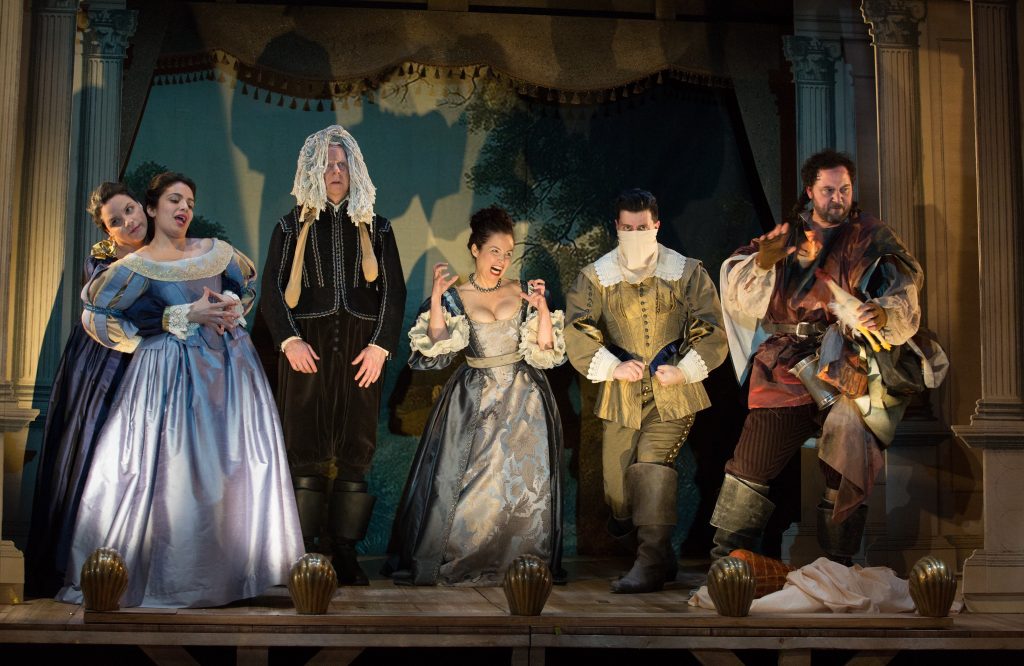10 Reasons Two Actors Wouldn’t Survive the 1600s
Ghazal Azarbad and Paolo Santalucia are appearing in Soulpepper’s La Bête, which takes place in France in 1654. Each actor gives us five reasons they wouldn’t have survived that time period.
 Ghazal Azarbad
Ghazal Azarbad
1. First and foremost, I’m a theatre actor, which even today is a risky gamble. Back then, it would have been a suicide mission, with even less stability, less pay, and less hygiene if you’re touring different towns. If you’re lucky enough to have a steady job playing for the Royal Court, you’d better be sure the performance is top notch; otherwise, you’re dead pal. If touring with a bunch of smelly actors for virtually zero pay wouldn’t kill me, the Court eventually would.
2. I often fall asleep before I can turn off my bedside table light, and back then it would have been a candle. Only a matter of time before I’d die in a fire I caused.
3. Speaking of dying in a fire, here are all the reasons I’d for sure be burned at the stake:
- I’m a woman (aka a witch)
- I’m a woman of colour (aka a witch)
- I’m a woman of colour who’s loud and expressive (aka a witch)
- I’m a woman of colour who’s loud and expressive and prone to speaking up against injustices (aka a witch)
- I’m a vegan (aka a witch)
4. I would’ve riddled myself with diseases from all the stray dogs I’d try to take in as my own.
5. I have a feeling I’d be trampled in a riot I accidentally wandered into. Because the 1600s were full of riots, right?
Paolo Santalucia
1. I think the most obvious reason I’d wind up dead would be that I’m gay—which means I’d be burned alive quicker than you could say “lip sync for your life!”
2. I don’t think I’d be able to survive the 1600s bathroom situation. I’d either die from holding it in too long to avoid having to go in a pot under my bed, or I’d end up dead at a party because I wouldn’t be able to bring myself to break the seal in someone else’s pot under their bed. It would be a hard “no” for me on cross-chamber-pot-pollination.
3. You’d think that as a white male, my chances of surviving the 1600s political landscape would be pretty good. And that privilege would definitely mean that I could at least do things like go to school and own land. But I’d flip-flop between whatever belief people were killing each other over, so I’m pretty sure I’d piss enough people off that sooner or later someone would just shank me for being a wet noodle when the religious war-of-the-month came ’round.
4. I couldn’t sacrifice a full wardrobe—I just can’t handle the idea of wearing one outfit the whole year, and then only having one other fancy outfit for when I’m invited to whatever the Renaissance version of the Met Gala is. I’d impoverish myself on new doublets or stockings or hats (let’s hear it for millinery) and would wind up on the street, where I’d contract something that gave me boils and end up dying wrapped in beautiful—but useless—chiffon as my nose fell off.
5. I really want to pretend I’m good enough to sword fight, but I’m just not coordinated enough. I’d for sure lose the street fight, but I’d be wrapped in beautiful—but useless—chiffon.








Comments